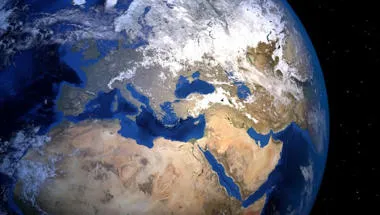
Biography
Brittany Pugh is a PhD student in the Department of Geography, King's College London.
Brittany has a strong interest in the investigation of broad-scale patterns of biodiversity, with a particular focus on plant species and how these patterns are likely to change with climate, land use and other disturbances. After completing a BSc in Geography at the University of Nottingham, she worked as a research assistant on a range of projects from public perception of freshwater pollution in the UK to investigating how organism traits have changed across the Anthropocene. Before starting her PhD, Brittany completed an MSc in Remote Sensing and Environmental Mapping at University College London.
Research
Thesis title: 'Understanding multi-scale relationships between geodiversity and biodiversity'
Geodiversity (defined as the diversity of hydrology, geomorphology, soil and geology in terms of their resource giving potential) is strongly interlinked with climatic variables (such as precipitation, temperature, wind), which together comprise the total abiotic niche in which all biological organisms exist.
However, compared with climate, geodiversity variables have been understudied regarding their relationship with biodiversity. Biodiversity and geodiversity are both multifaceted and highly scale dependent, having non-linear relationships with increasing area and temporal sampling duration. Additionally, within any given area and at any given moment in time, any individual biodiversity or geodiversity component can be measured in terms of their richness and/or abundance, with a broad range of available metrics. Most existing biodiversity- geodiversity literature is conducted at a single spatial and temporal scale. Therefore, the role of scale-dependence in driving variation in observed geodiversity-biodiversity relationships is not well understood.
This project aims to better quantify scale-dependence using case studies in the Canary Islands and Ecuador. Results will help better identify relevant spatial scales at which these relationships could be used to aid in conservation management. This is particularly important for tropical regions where biodiversity data is sparse, making geodiversity and climate variables a potentially important tool in conservation planning.
PhD supervision
- Principal supervisor: Mark Mulligan
- Secondary supervisor: Neil Brummitt (Natural History Museum)
Further details
Research

Physical Geography and Environmental Science research group
Enhancing understanding of processes, drivers and impacts in water, land, atmosphere and ecosystems to address environmental and societal challenges.
Research

Physical Geography and Environmental Science research group
Enhancing understanding of processes, drivers and impacts in water, land, atmosphere and ecosystems to address environmental and societal challenges.
